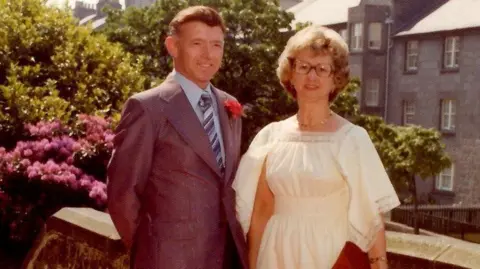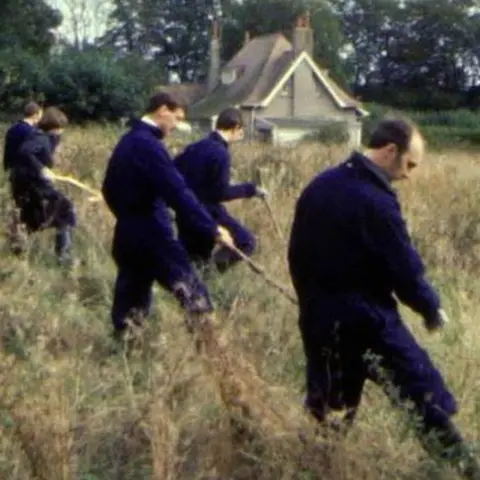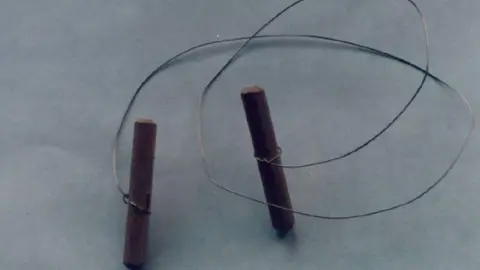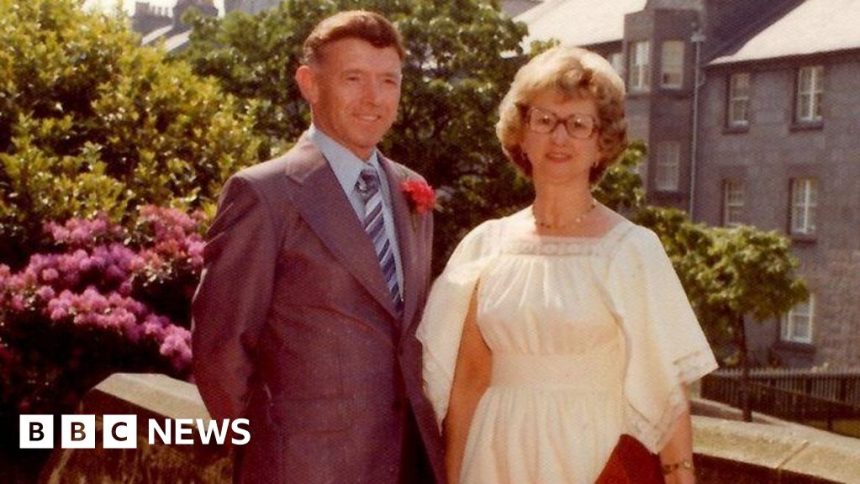Cheese wire murder hunt focuses on 200 DNA profiles
 Police Scotland
Police ScotlandPolice investigating the unsolved 1983 cheese wire murder of a taxi driver in Aberdeen have revealed they now have 200 possible genetic matches to pursue in the hunt for the killer.
George “Dod” Murdoch, 58, was found dead beside his vehicle, with the cheese wire garrotte lying nearby.
A £50,000 reward has been on offer in the hope of helping to finally find the killer.
Ahead of Sunday’s 41st anniversary of the killing, Police Scotland said they would now try to contact people from an initial list of 200 possible genetic matches to establish any family link to a profile from the scene.
Mr Murdoch picked up a fare in Aberdeen’s west end on the evening of 29 September 1983, and told his control room he was heading to Culter.
He never made it to his destination.
About two miles into his fateful journey, he turned off on to Pitfodels Station Road, on the outskirts of the city, where he was attacked and killed.
Two young cyclists saw him being assaulted and raised the alarm, but when officers arrived it was too late.
His wife Jessie – who later died in 2004 – worried about his safety, but he had told her he would never resist a robber.
His money and wallet were stolen in the attack, but it is not known if this was the motive.
A major investigation was launched, but the killer has never been caught.

Forensic scientists previously managed to develop a male DNA profile from crime scene material thanks to advances in analysis techniques, but detectives need to find a match.
Senior investigating officer, Det Insp James Callander, said that what is described as “familial DNA” list, formed with the help of the National Crime Agency, was a major advance in the case.
He added that what had been found had been “further enhanced” to allow officers to search for anyone related to the DNA sample.
Familial DNA searching is based upon the principle that DNA is inherited and all members of a family share certain aspects of their DNA.
 Police Scotland
Police ScotlandDet Insp Callander said: “This new DNA data is significant and will help take us a step closer to getting justice for Mr Murdoch’s family.
“The familial DNA links identified will assist in tracing people who can help with our inquiries.
“I want to make clear, these individuals are not suspects, but we hope they may be able to help with our ongoing investigation.
“I would ask everyone to think back to when George was murdered. If you have any concerns at all from around that time, please don’t dismiss them and contact us.
“The solving of this horrific crime requires the help of the public. I would urge anyone with information to please come forward. We want to give George’s family some much-needed closure.”

In a statement, Mr Murdoch’s family said: “This latest development with the familial DNA is a huge leap forward and we thank the police for their continued endeavour in getting to this stage.
“It is very encouraging and refreshes our hope that we can finally identify who is responsible for Dod’s murder.”
Police Scotland can be contacted via 101 or emailed through a dedicated inbox at SCDHOLMESAberdeen@scotland.pnn.police.uk






